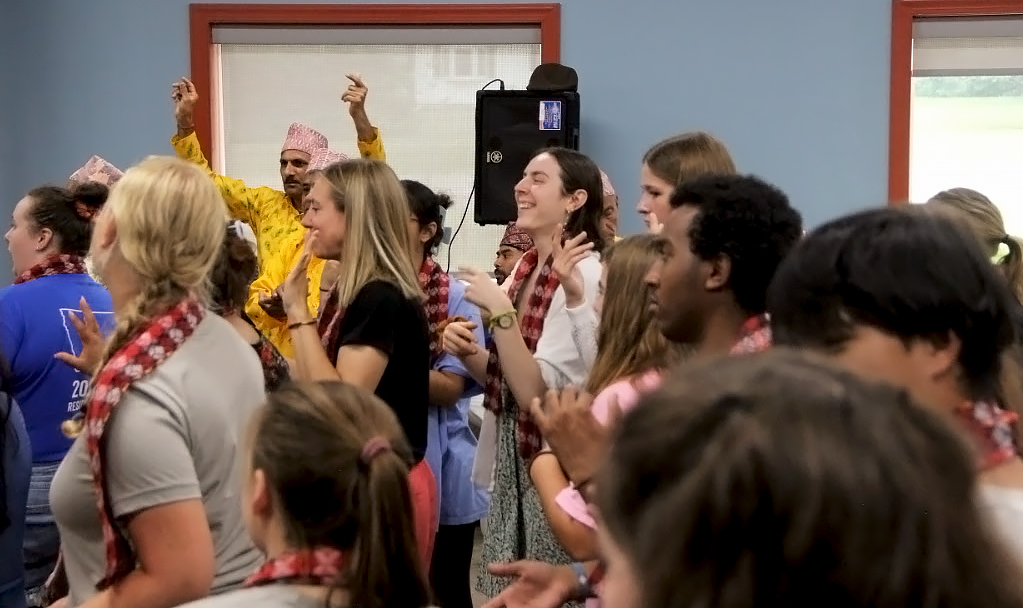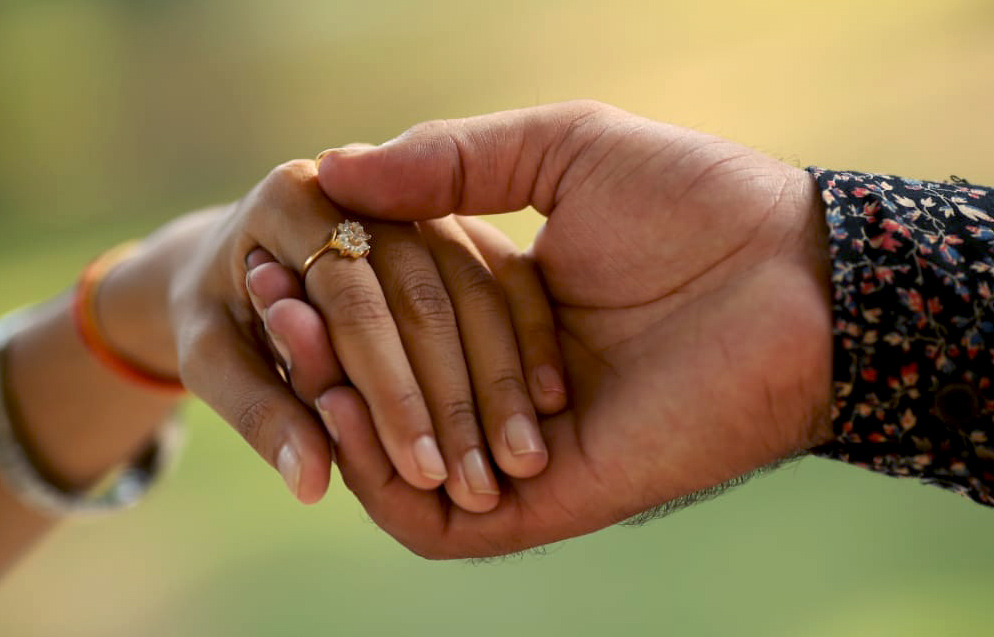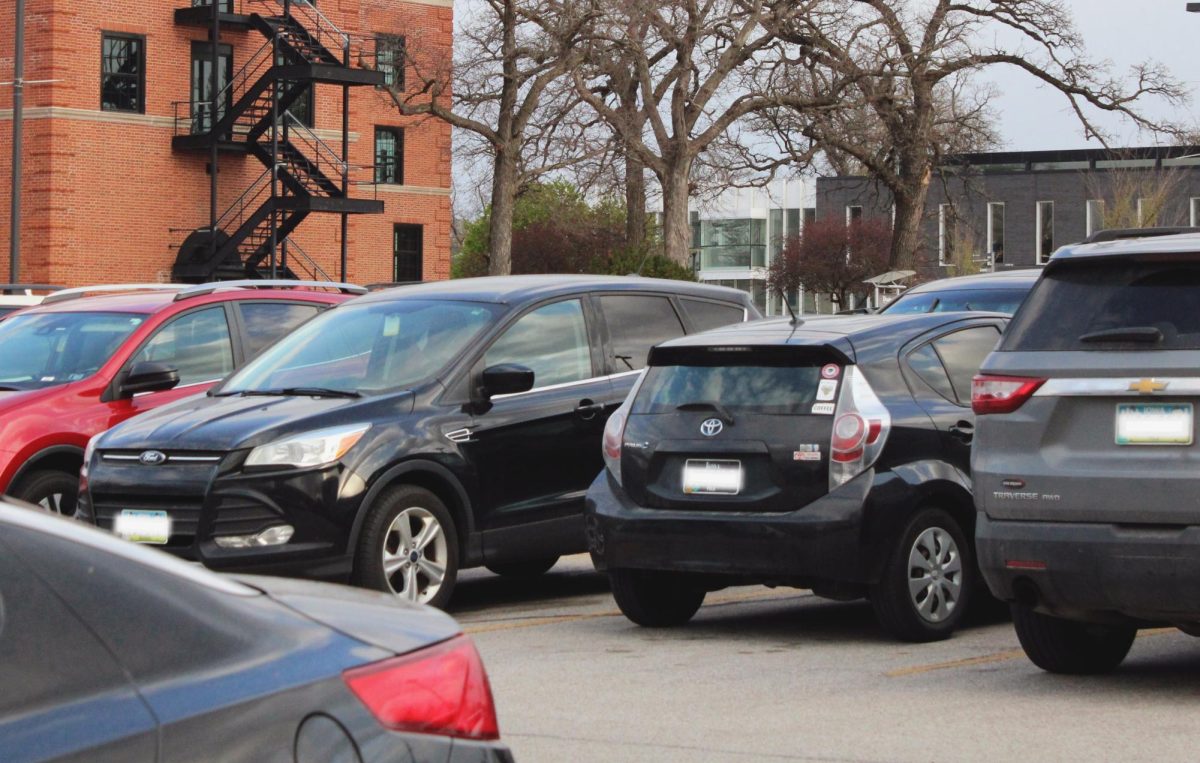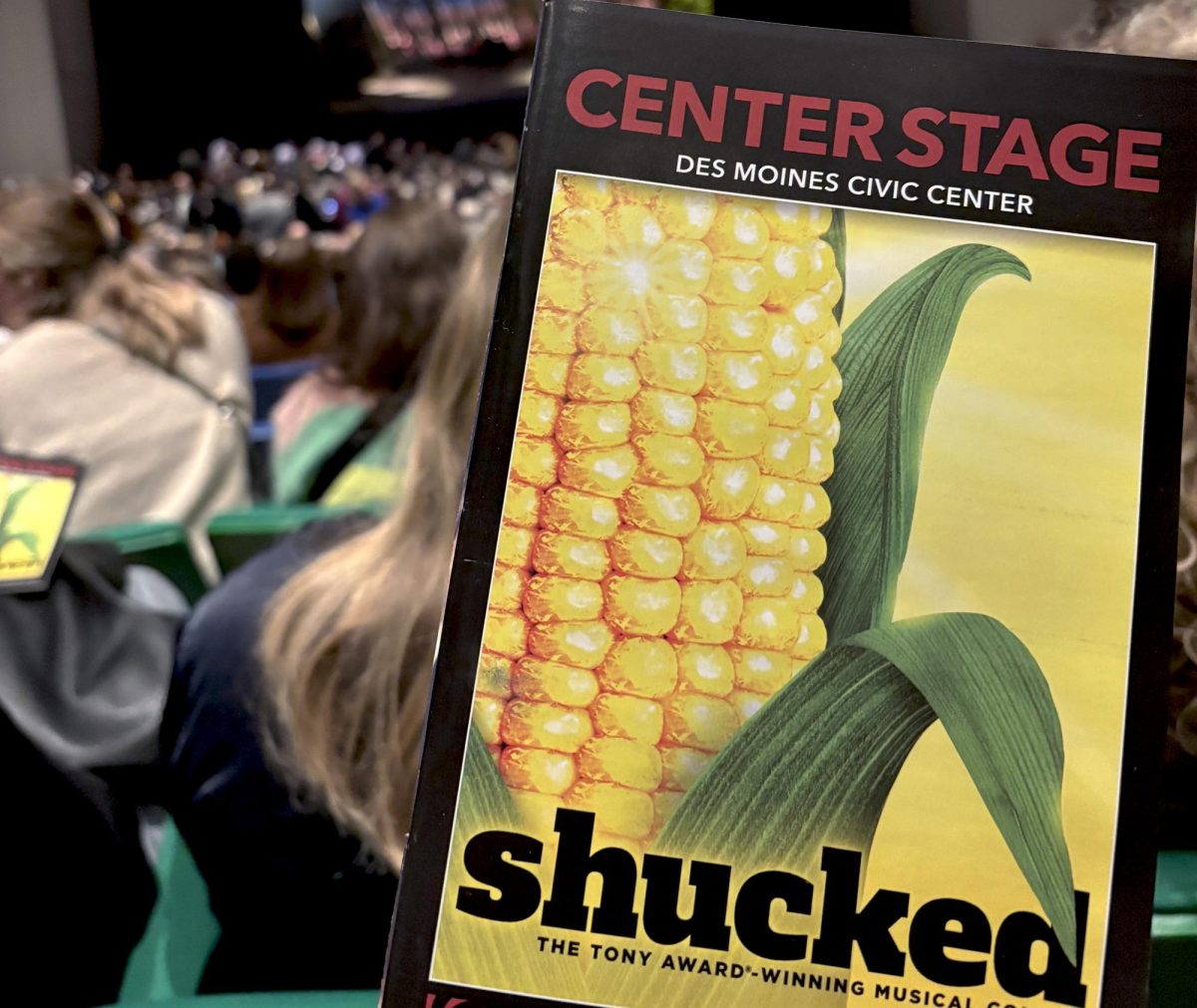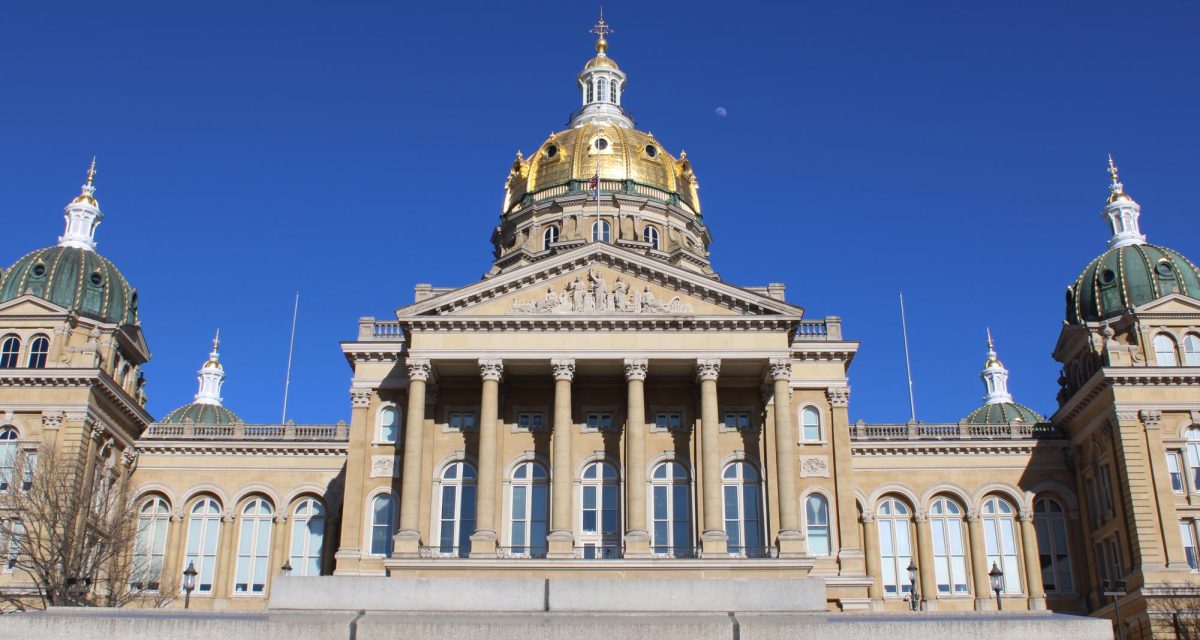Junior Stephen Barnacle grew up in a small town in Indiana, where he said racism and bigotry pushed him and his family away from the church. Over the next few years, he sampled other religious practices — Islam, Norse paganism and agnosticism — but nothing stuck.
Then, during his first year at Drake, Barnacle connected with the Jewish community here. He now practices Reform Judaism, a liberal movement in Judaism that emphasizes the right of each member to make their own choices regarding Jewish practice and observance.
“I’d never given Judaism a proper chance, so I spoke to some Jews I knew, started looking into getting involved with it, and I very much do think it’s right for me,” Barnacle said.
Like many college-age students, Barnacle is exploring what it means to be religious during the tumultuous college experience, away from the religious influences of family.
Sophomore Kate Ladevich, a member of SALT Company Des Moines who identifies as a nondenominational Christian, didn’t identify that way when she first arrived at Drake.
Ladevich grew up Christian, but when she lost two family members to murder, she lost her faith.
“I was really angry at God, and I was like, ‘If God really loved me, he wouldn’t have taken my precious family,’” Ladevich said. “I came to college, and I learned that God is not going to remove our suffering, but more produce a reason.”
Ladevich reconnected with her faith at Drake, where she saw religious people “all around.”
“People were reaching out to me and just showing me, like, a love I had never experienced before, like a true, genuine love,” Ladevich said. “So since then, I’ve just been pursuing Christ and pursuing that love as well and just wanting to spread that love.”
Theodore Brown, a first-year member of Bulldog Catholic, began exploring Catholicism before coming to Drake. He said the community Catholicism offered solidified his decision to convert from Evangelical Lutheranism. He first explored Catholicism to see if it was something he could intellectually agree with, but soon discovered another call to the religion after being invited to mass.
“[A] huge other part of [my] faith is kind of something that kind of defies words. I hate to use the term, but it was kind of a mystical experience,” Brown said. “I went to mass for the first time here [during] Welcome Weekend. I had a very powerful experience there and then signed up for the conversion process.”
Catalina Samaniego, a senior who follows the Christian faith, came to Drake as a Catholic. Once she arrived on campus, she explored agnosticism and Islam before finding faith in Congregational Christianity.
For Samaniego, faith ultimately revolves around community.
“Only in America, uniquely, is faith that it is something that’s individual, rather than like a cultural or like family expression,” Samaniego said. “What [my] Mexican and the Indigenous background really gave me [was] weekly church service. I go with my friends and my boyfriend, and then I’m in a Bible study.”
Drake students have access to a plethora of groups to aid in their journey; Drake’s website lists nine religious and spiritual organizations, though this list excludes the Muslim Student Association.
“There’s a lot of people who would say they’re a part of a religion, but they don’t really have that faith or belief,” Barnacle said. “It’s just like, ‘Oh, this is the thing I do. I don’t think about it. I don’t live this as part of my life.’”
18 to 29-year-olds in the U.S. are more likely to report not following a religious practice than their older peers, according to Pew Research Center’s Religious Landscape Study. 44% don’t identify with a religion, compared to an average of 25% across older age groups.
At Drake, 79% of undergraduate students reported having discussions with people whose religious beliefs were different than their own, according to the 2020 Drake Student Survey. However, Brown doesn’t believe there is always understanding in these conversations due to the stereotypical jokes his peers make.
“I hate to make this comparison, but if somebody made a joke about rabbis being bankers, it’d be rightly recognized as completely unacceptable,” Brown said. “I’ve literally heard professors make pedophile priest jokes. And so that’s just completely unacceptable in many ways.”
In general, Brown doesn’t feel as if he can discuss his beliefs around his peers.
“It’s just that the views that a lot of people have of the church are pretty negative in a lot of ways that aren’t sometimes substantiated and sometimes really are just based off a misunderstanding or falsehood about the church,” Brown said.
Brown’s experience isn’t uncommon. Sameniego rarely mentions her faith because she doesn’t want someone to think she is pushing her religious practices onto others.
“That perpetuates the notion [that] Christians are these evangelical Christian nationalists who don’t like other religions,” Samaniego said.
Barnacle also stays quiet in many faith-related discussions because he doesn’t know how his peers will react.
“I’m probably not going to chip in about [the Palestine conflict], just because people tend to have that mental association of Jewish people with Israel,” Barnacle said. “I believe that it is morally and objectively incorrect to have problems with a demographic of individuals for the actions of a governing body.”
Ultimately, Samaniego doesn’t believe Drake fosters an environment where individuals can speak freely about their faith in a nuanced way.
“We Drake students do a good job of not fighting with each other, [but] Drake does foster an environment that favors being agnostic or spiritual,” Samaniego said. “The campus is so small, it’s nobody’s fault. I think it gets hard if you’re on such a small campus for people to understand the nuances and everyone else’s faith.”
These students think there is much Drake could do to bridge the gap between the different religious organizations and subsections. Barnacle believes Drake can help fix the misconceptions by better educating students on the characteristics of each practice. Brown feels as if Drake could do more to promote each religious and spiritual organization. Samaniego wants Drake to offer more classes around different “institutions of faith.”
Drake’s religion department offers a few courses on this bill, including REL 114, Religions of Des Moines. The course requires its students to visit several religious communities and learn about them.
“I would really encourage students, especially if you’re more on the social sciences side or the philosophy side, to take [REL 114],” Samaniego said. “I think that the University should make sure that students have the ability to fit those classes into their schedule.”
Ladevich feels as if spaces to interact with students of other faiths are limited in a “Christian-dominated” environment like Drake. However, she has found such opportunities in the recent MSA dinner and interpersonal relationships. According to Ladevich, it’s “really easy” to have preconceived notions about people who practice other religions until you meet them face-to-face.
“[We’re] like, ‘Well, I believe this, and because they’re following this religion, they are automatically at odds with me, and therefore I don’t like them,’” Ladevich said. “It’s like, no, that’s not how we build community with one another.”

